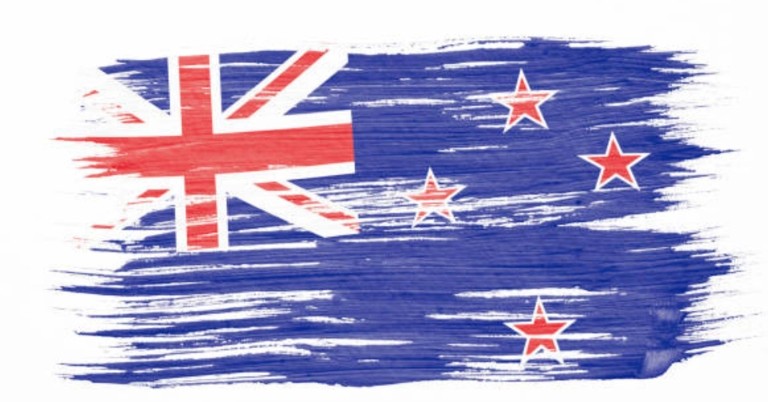What is an employer of record?
An employer of record (EOR) is a third-party partner that becomes the legal employer of a company’s talent in a specific country. While the company manages day-to-day responsibilities, the EOR handles the rest—including compliance, employment contracts, payroll, and benefits.
Velocity Global’s EOR solution in New Zealand enables companies to quickly and compliantly onboard talent without the red tape of entity setup or the burden of interpreting complex labor laws. For more insights, check out these 5 tips for doing business in New Zealand.
Employment Guide to Hiring in New Zealand
Explore the topics below to learn everything you need to know about hiring employees in New Zealand.
Hiring in New Zealand
Employee agreements
All employees must receive a written agreement that complies with the Employment Relations Act 2000. These agreements should clearly outline job terms, responsibilities, and entitlements.
Probationary periods
Probation periods of up to 90 days are common and legal, provided they’re agreed to in writing and included in the employment contract.
Average working hours
A typical full-time workweek is 40 hours. That said, flexible and remote working arrangements have become increasingly popular, especially in tech and knowledge sectors.
How an employer of record helps you hire in New Zealand
Velocity Global’s New Zealand EOR solution takes the complexity out of hiring by managing employment contracts, compliance, onboarding, and local HR nuances. Businesses can scale faster without the distraction of entity setup or legal uncertainty.
Get expert help with hiring in New Zealand
We're ready to guide you with global hiring, payroll, benefits, international workforce compliance, plus pricing information.

Payroll in New Zealand
Payroll cycles
Most employers pay talent either biweekly or monthly. Under the payday filing rules, employers are required to report income and tax details to Inland Revenue with each payment.
Wages
As of April 2025, the minimum wage in New Zealand is NZD23.15 per hour. Salaries vary widely based on role and region, with cities like Auckland offering higher compensation benchmarks.
Bonus payments
Bonuses aren’t legally required but are commonly offered in sales, executive, and performance-driven roles.
How an EOR helps employers run payroll
Velocity Global’s EOR solution streamlines payroll administration in New Zealand. From accurate and timely payments to tax reporting and payslip generation, our Global Work Platform™ simplifies the entire process.
Taxes in New Zealand
Tax due dates
Employers are required to submit annual tax filings and make provisional tax payments throughout the year. With payday filing, reporting occurs with each payroll cycle.
Tax thresholds
Income taxes follow a progressive model ranging from 10.5% to 39% in 2025. Employers are also required to contribute to KiwiSaver, New Zealand’s voluntary retirement savings scheme.
Health insurance
While New Zealand has a strong public healthcare system, many employers provide private health insurance as a supplemental benefit to remain competitive.
Pensions
KiwiSaver serves as the country’s core retirement scheme, requiring employers to contribute at least 3% of an employee’s gross pay.
How an EOR helps you manage taxes
Velocity Global takes the guesswork out of tax compliance. Our team ensures timely filings, accurate calculations, and adherence to KiwiSaver contributions—all handled through our centralized platform.
Calculate payroll contributions in New Zealand
Leave entitlements in New Zealand
Annual leave
Employees are entitled to at least four weeks of paid annual leave after 12 months of continuous employment.
Parental leave
New parents may take up to 26 weeks of government-funded parental leave, with some employers offering additional paid time off.
Sick leave
After six months of continuous employment, employees are entitled to 10 days of paid sick leave each year.
Public holidays
New Zealand observes 11 national public holidays. If a holiday falls on a weekend, it’s often "Mondayised" and observed the following Monday.
How an EOR helps you manage leave
With Velocity Global’s support, leave entitlements and public holidays are accurately tracked and administered. Our EOR solution ensures full compliance and provides a consistent experience for supported employees.
We’re here to help you hire in New Zealand
Get expert guidance with global hiring, payroll, benefits, and compliance.

Employee benefits in New Zealand
Statutory benefits
Employers must provide basic entitlements, including annual leave, paid public holidays, KiwiSaver contributions, and parental leave.
Supplemental benefits
To stand out in a competitive market, companies often offer:
- Private medical insurance
- Wellness allowances or gym memberships
- Remote work or flexible schedules
- Professional development stipends
How an EOR helps you offer benefits
Velocity Global helps customers go beyond the basics. Our New Zealand EOR solution enables companies to offer competitive benefits without the operational burden of managing them locally.
Terminations and offboarding
Notice periods
Notice requirements are typically two to four weeks and must be included in the employment agreement.
Severance pay
Severance isn’t required by law unless it’s outlined in the employment contract or part of a redundancy process. In redundancy cases, compensation is often negotiated.
How an EOR helps with terminations
Velocity Global helps ensure that all termination processes comply with the Employment Relations Act. From notice period guidance to final pay, our team supports both employers and talent through every step.
-
Is an EOR legal in New Zealand?
Yes. Using an employer of record is a compliant and efficient way to hire talent in New Zealand without having to establish a local entity.
-
Can an EOR sponsor work visas in New Zealand?
In some cases, yes. Velocity Global works with immigration partners to assess eligibility and support visa sponsorship.
-
How long does it take to onboard talent?
Onboarding can take as little as a few business days, depending on documentation and background checks.
-
What industries use EOR services in New Zealand?
Tech, financial services, renewable energy, and e-commerce are among the most common industries leveraging EOR solutions.
-
Do supported employees receive the same rights as direct hires?
Yes. Supported employees enjoy the same legal protections and statutory benefits as directly hired employees.


